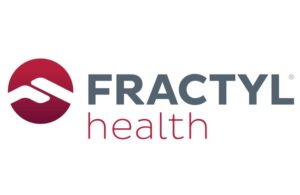 Fractyl Health announced multiple studies supporting its programs for the reversal and treatment of diabetes.
Fractyl Health announced multiple studies supporting its programs for the reversal and treatment of diabetes.
Lexington, Massachusetts-based Fractyl reported data from its Revitalize 1 pivotal study and its Rejuva program. Revitalize 1 evaluates the company’s Revita endoscopic ablation procedure to reverse diabetes. Rejuva evaluates a targeted pancreatic gene therapy.
The company presented its results at the American Diabetes Association’s 83rd Scientific Sessions.
About the Fractyl Health Revitalize 1 results
Revita uses hydrothermal ablation to target the duodenum in conjunction with empagliflozin. The diabetes reversal treatment has FDA breakthrough device designation. The FDA approved an investigational device exemption (IDE) trial for Revita in April 2022.
Fractyl’s study explored the safety and efficacy of Revita in seven subjects previously treated with multiple glucose-lowering agents (GLAs) and insulin. Thus far, those subjects completed 48-week follow-up after undergoing the outpatient Revita procedure and subsequent empagliflozin administration.
To date, treatment showed rare and mild device-related adverse events. At one year post-treatment, subjects experienced a median HbA1c reduction of 1.6%. Fasting Plasma Glucose (FPG) fell by 77 mg/dL. Subjects reported 9.3% total body weight loss and a 44% insulin dosage reduction. Previous studies of empagliflozin alone saw HbA1c reduce by 0.7%, FPG by 29 mg/dL, insulin by 12% and up to 3% total body weight loss.
Fractyl Health said its data highlights the potential of the combined approach. The study remains ongoing, with enrollment set to complete in the first half of 2024. Fractyl plans for the randomized, double-blind, sham-controlled trial to include up to 420 subjects. It set a primary objective of assessing the efficacy of Revita in improving glycemic control at 24 weeks compared to sham.
“Revita aims to address duodenal dysfunction, a potential root cause of T2D,” said Dr. Harith Rajagopalan, CEO of Fractyl Health. “It is not only about controlling symptoms but intervening at the root cause. These promising results bring us closer to our goal at Fractyl Health, which is to control and, ultimately, eradicate T2D. With the continued progress of the Revitalize 1 study, we hope to offer a truly revolutionary treatment for the millions living with this disease.”
Results for the Rejuva program
Rejuva is a one-time, durable, tissue-specific gene therapy.
Fractyl Health said its findings from the Rejuva program in rodents highlighted the “promising implications” of the platform. The company believes it could reshape the treatment landscape for type 2 diabetes and obesity.
This study compared single-dose GLP-1-based transgene to chronic semaglutide in rodent models for diabetes and obesity. Fractyl Health said it corroborates the fundamental hypothesis that local delivery of GLP1 PGTx, driven by the insulin promoter, could potentially improve metabolic control in type 2 diabetes. This approach protects the pancreatic islet from failure, the company said.
Unlike current therapies, Fractyl Health believes Rejuva could provide durable treatment benefit long after delivery itself. It may offer further benefits of GLP1 targeted principally to and within the pancreas, the company said. Fractyl aims for first-in-human studies in 2024.
“The fact that the pancreas progressively fails is at the heart of T2D,” said Rajagopalan. “If we can protect the pancreas from failing, we can halt the progression of T2D. Today’s results show for the first time the potential of GLP1 PGTx to meaningfully improve blood glucose and weight when compared to the current standard of care pharmacology.
“Our goal at Fractyl Health is to eliminate T2D for the millions of people living with the disease, and these results take us one step closer to that goal.”

